This season you’ll hear a collection of thought-provoking conversations which will explore the many dimensions of mental well-being. The conversations will highlight the dynamic connection between physical, mental, emotional, and spiritual dimensions of well-being. Our conversations touch on the latest scientific research, practices, and therapies. Together, we navigate the multifaceted landscape of mental health, empowering listeners to open their minds to the interconnected nature of mental well-being.
Host: Heather Haslem
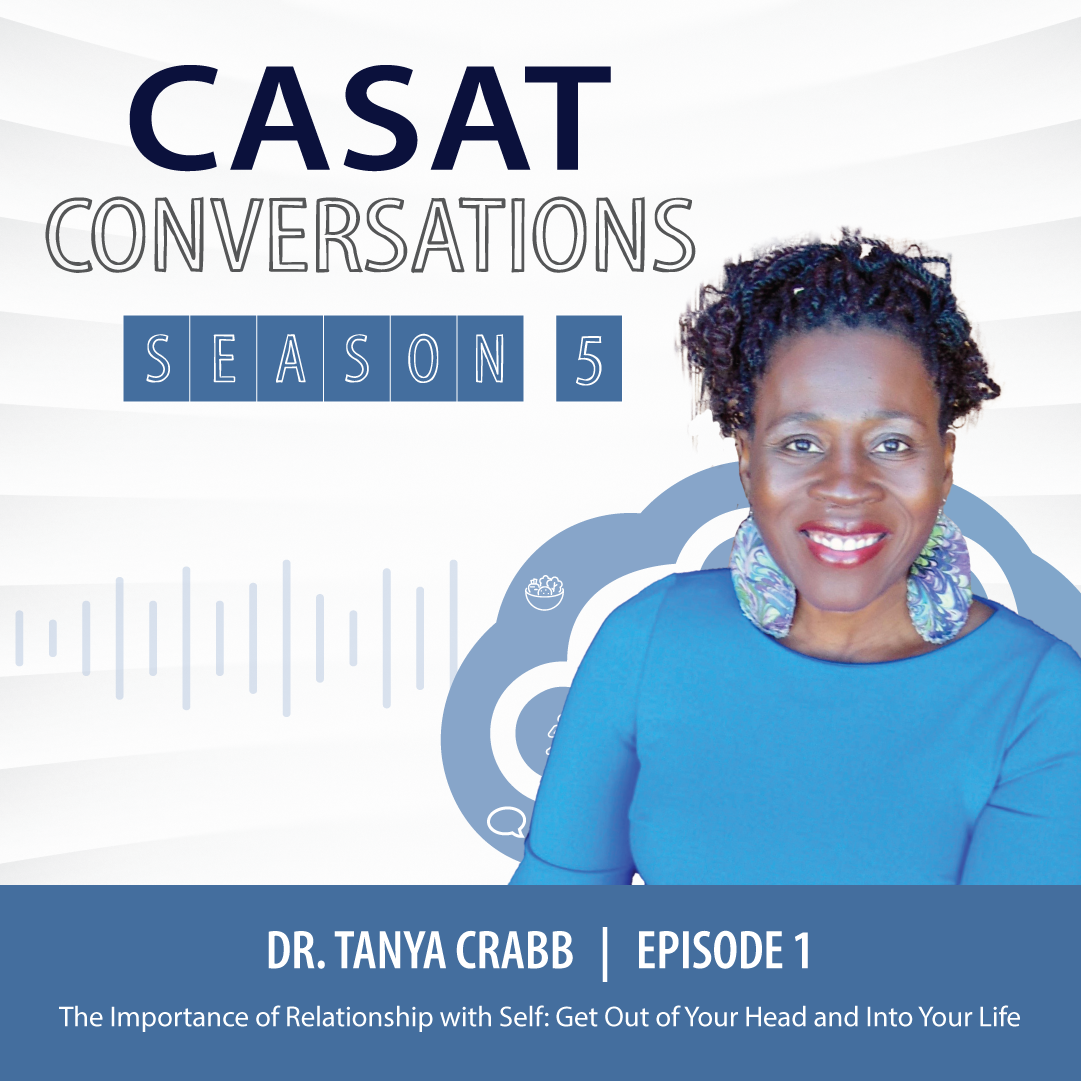
S5 E1: The Importance of Relationship with Self: Get Out of Your Head and Into Your Life
Join us for a dynamic conversation with Dr. Tanya Crabb as we explore the complex interplay of mental health, physical health, culture, trauma, adverse childhood experiences, gender roles and family history. She emphasizes the importance of a mind-body approach to mental health, encouraging health professionals to peel back the layers and look deeply into each client’s life experiences. She stresses the importance of approaching individuals with curiosity and respect. Lastly, we discuss the importance of self-care, examining the diverse strategies individuals can employ to nurture their well-being.
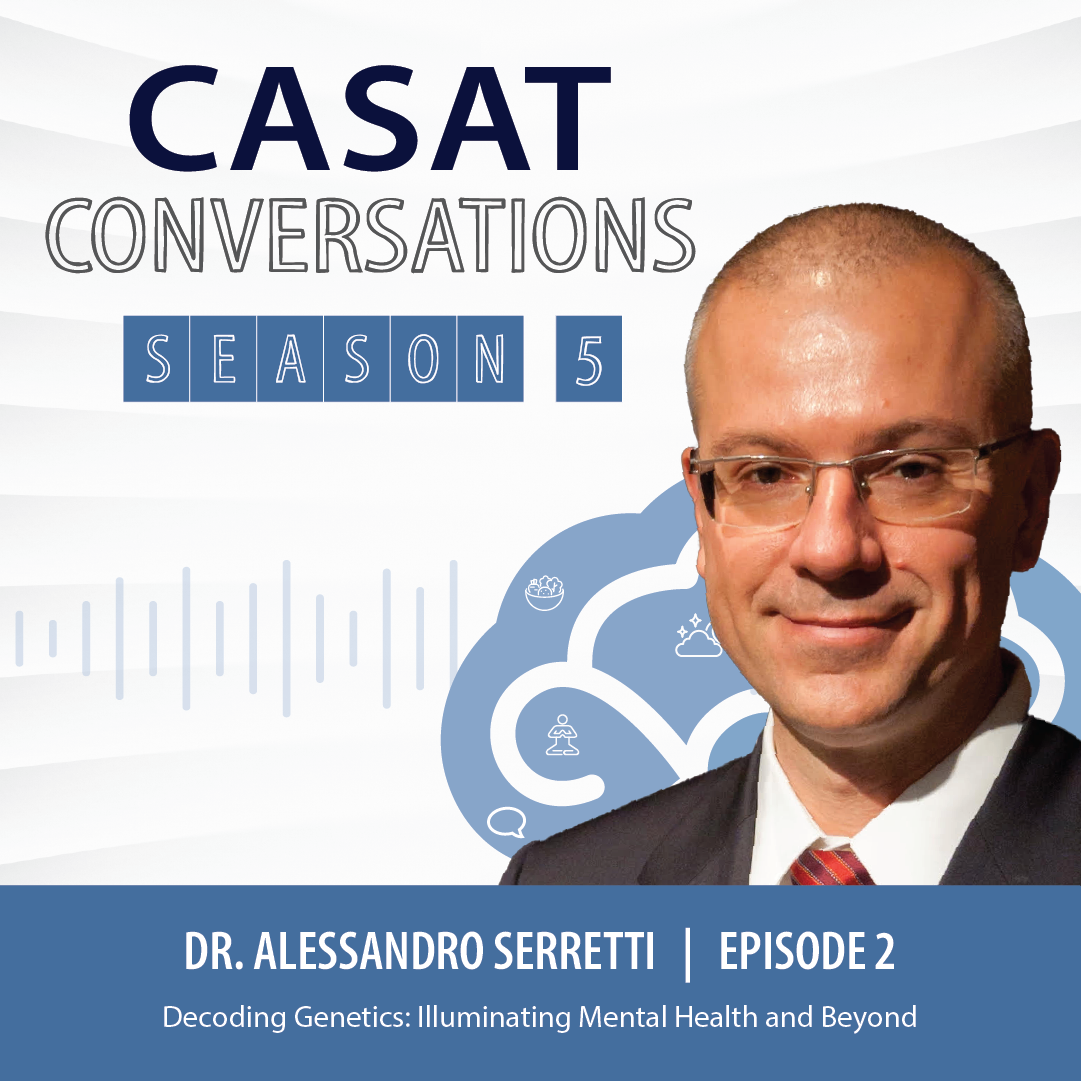
S5 E2: Decoding Genetics: Illuminating Mental Health and Beyond
Join us for an intriguing and enlightening interview as we delve into the world of genetics research with Dr. Alessandro Serretti, a renowned psychiatrist and genetic researcher. Prepare to gain valuable insights into the current landscape of genetics research, as well as a captivating glimpse into its historical development and future prospects. Dr. Serretti expertly unravels the intricate relationship between genetics and mental health, shedding light on our current understanding and emphasizing crucial factors to consider in the treatment of mental health conditions.

S5 E3: Mind in Motion: Unleashing the Power of Physical Activity for Mental Health
Join us for an insightful conversation with Dr. Felipe Schuch as he explores the profound impact of physical activity on mental well-being, including its profound effects on the biology of the brain. Discover how finding the exercise that suits a person best can yield remarkable benefits for mental health. Dr. Schuch sheds light on the psychological factors that drive our engagement in physical activity and reveals the dosing effect—how the frequency, duration, and intensity of exercise can positively impact mental well-being. Prepare to be inspired to get moving, as we uncover the protective effect that exercise holds for mental well-being. Tune in and unlock the transformative power of exercise for mental health.

S5 E4: Food for Thought: Unraveling the Gut-Mind Connection for Optimal Mental Well-being
Join us as we unravel the intricate connection between our gut microbiota and its profound impact on mental well-being. Dr. Dinan shares his decades of research findings and discusses how a nutrient rich diet can become a powerful tool in supporting mental health. He also discusses how certain foods and pharmaceuticals can negatively impact the gut microbiome and brain health. You won’t want to miss this important discussion highlighting the importance of food and mood.
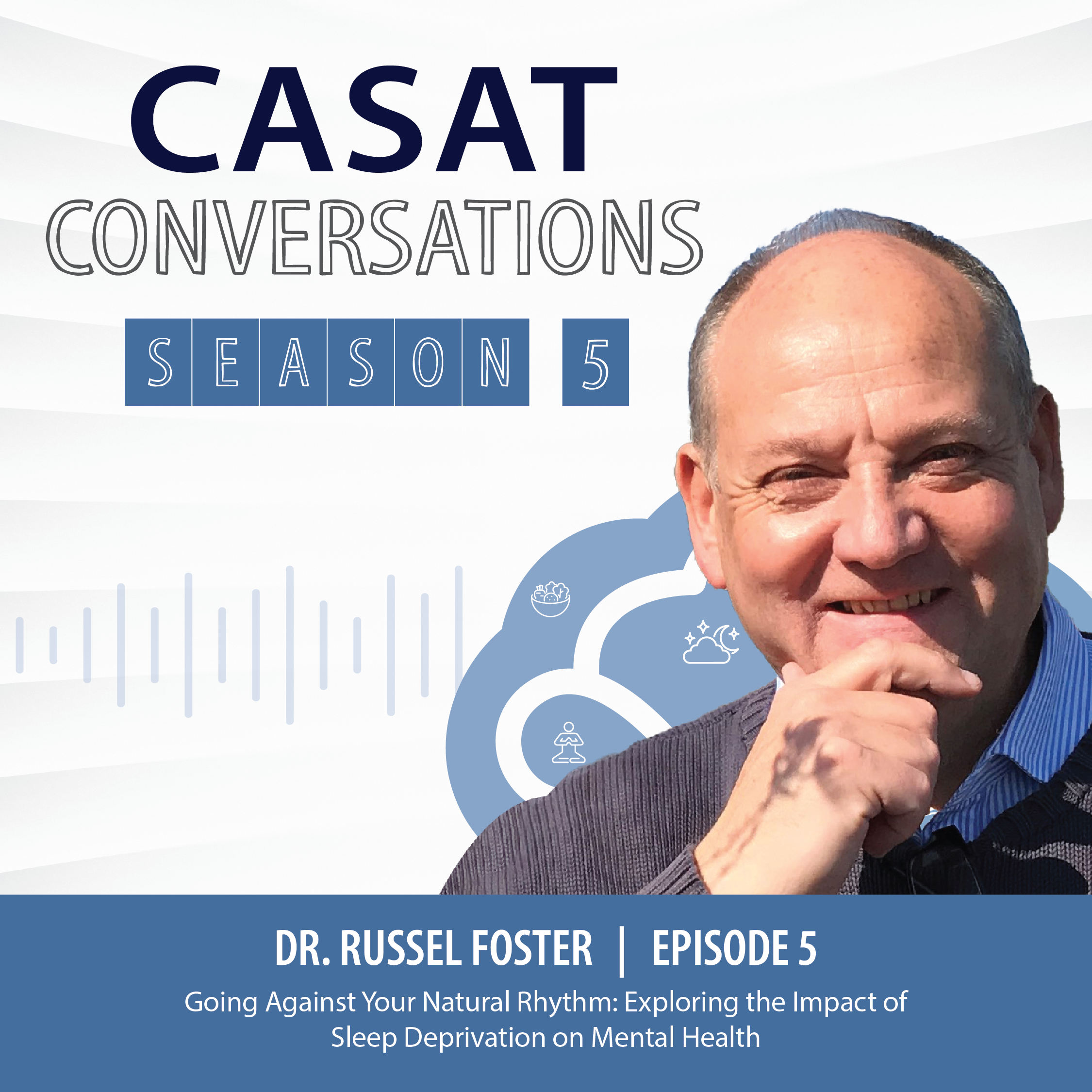
S5 E5: Going Against Your Natural Rhythm: Exploring the Impact of Sleep Deprivation on Mental Health
Join us for another insightful conversation on CASAT Conversations. This week, Dr. Russel Foster joins us to discuss the importance of sleep on mental health. We discuss why sleep is crucial and how you know if you are getting enough sleep. We discuss the catastrophic impacts of not getting enough sleep and the effects of shift work. He offers real-world examples and shares the latest research.
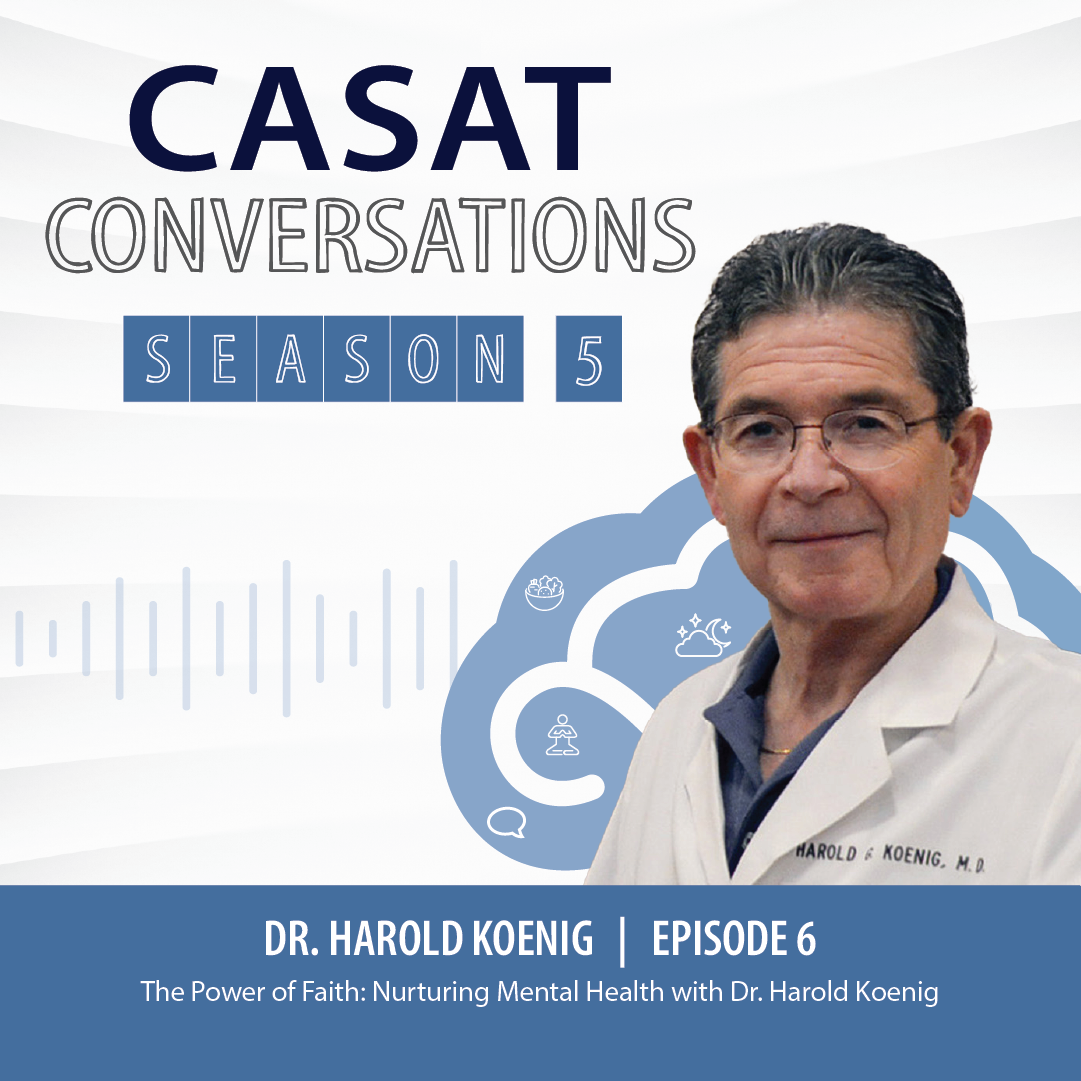
S5 E6: The Power of Faith: Nurturing Mental Health with Dr. Harold Koenig
Join us for a captivating interview with Dr. Harold Koenig, professor of Psychiatry and Behavioral Sciences at Duke University. In this enlightening episode, we explore the vast benefits that religion offers for mental health.
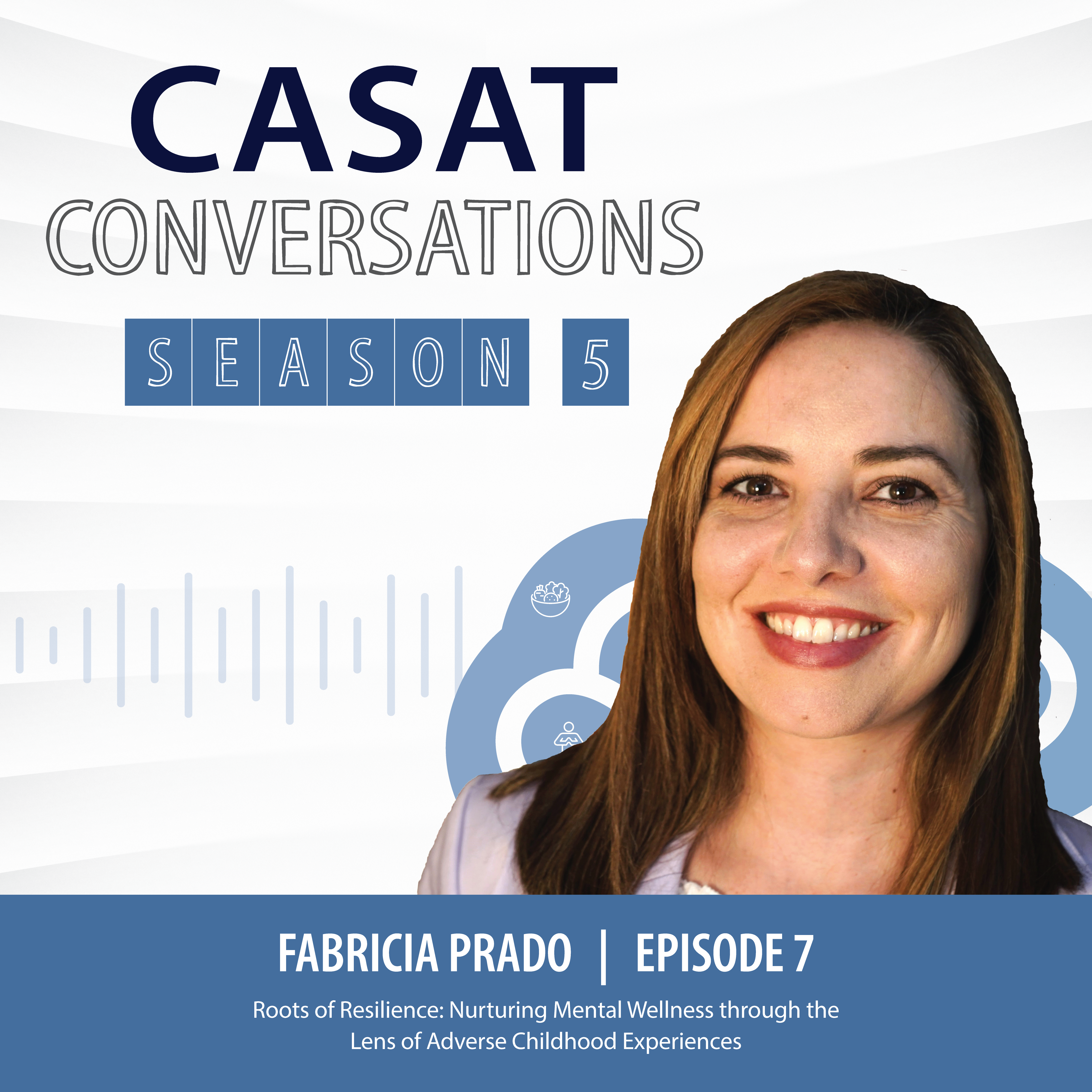
S5 E7: Roots of Resilience: Nurturing Mental Wellness through the Lens of Adverse Childhood Experiences
Join us for a thought-provoking conversation with Fabricia Prado. In this episode, we examine the profound impact of Adverse Childhood Experiences (ACEs) and their role as the root cause of both physical and mental illness. We discuss the importance of developing a mindful relationship with our bodies and the need for understanding how healing from trauma requires a holistic approach that involves mind, body, and spirit. Additionally, in this discussion, you’ll gain insights into community-based initiatives, therapeutic interventions, and societal shifts that collectively contribute to a more supportive and nurturing environment for those affected by ACEs.

S5 E8: Everything is Related: Exploring the Ancient Wisdom of Classical Chinese Medicine for Mental Well-being
Join us as we bridge the gap between ancient wisdom and modern mental health solutions with Dr. Howard Chen. Dr.

S5 E9: Ayurveda: The Science of Life
Join us for an illuminating conversation with Dr. Sheila Patel, a board-certified family physician and Chief Medical Officer for Chopra.

S5 E10: Cultivating Healthy Bonds: Insights from Attachment Theory and Emotionally Focused Therapy for Nurturing the Human Psyche
Join us for a fascinating conversation with Cornelius Sheehan, LCSW, as we delve into the intricate relationship between social connections and mental health.
